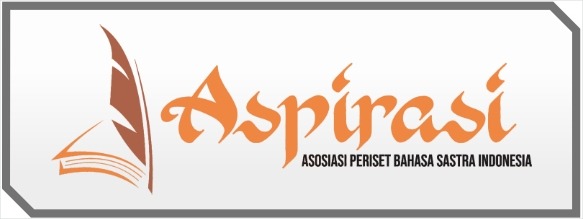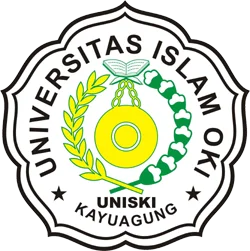The Relationship Between Thinking Styles and Writing Achievement of The Eleventh Graders of SMA Islam AZ-ZAHRA Palembang
DOI:
https://doi.org/10.61994/jee.v1i1.60Keywords:
Correlation Analysis, Thinking Styles, Writing AchievementAbstract
This study aimed to find out the relationship between thinking styles and writing achievement, how much thinking styles contributed to the students’ writing achievement. This study used correlational research design. The sample was selected by using purposive sample technique, consisting of 55 students. The data were collected by administering thinking styles questionnaire and writing achievement test. The data obtained were analyzed by using Pearson Product Moment and Regression significant relationship between thinking styles and writing achievement of the eleventh graders of SMA Islam Az-Zahra Palembang and it categorized as low correlation. Moreover, thinking styles strategy contributed as much 31%. This means that the significant value of the correlation was included in the low category. In addition, the significant coefficient was -0.176 lower than alpha value 0.05 there was no significant correlation. The Pearson Correlation of students’ thinking styles and writing achievement was 0.199 indicates in low category correlation. It means the correlation coefficient was found to be insignificant. It also implies there was no statistically significant relationship between thinking styles and their writing achievement. The null hypothesis (Ho) was accepted and the alternative hypothesis (Ha) was rejected, as determined by the writer.
References
Baron, J. (2020). Religion, cognitive style, and rational thinking. Current Opinion in Behavioral Sciences, 34, 64-68.
Beattie, G., & Ellis, A. W. (2017). The psychology of language and communication. Taylor & Francis.
Braun, V., Clarke, V., Hayfield, N., & Terry, G. (2019). Thematic Analysis. In P. Liamputtong (Ed.), Handbook of Research Methods in Health Social Sciences (pp. 843–860). Singapore: Springer Singapore. https://doi.org/10.1007/978-981-10-5251-4_103.
Betoni, T., & Ulfaika, R. (2020). The Correlation Between Student’ Grammatical Mastery and Students’ Writing Achievement at XI Grade Students of SMAN 1 Tarakan Academic Year 2019/2020. Borneo Journal of English Language Education, 2(1).
Brown, H. D., & Lee, H. (2015). Teaching by Principles: An Interactive Approach to Language Pedagogy. White Plains, NY: Pearson Education.
Chick, N. (2016). Learning styles. Vanderbilt Center for Teaching.
Cohen, L., Manion, L., & Morrison, K. (2007). Research Methods in Education (6th ed). Routlage, NY: Madison avenue, Inc.
Costa, R. D., Souza, G. F., Valentim, R. A., & Castro, T. B. (2020). The theory of learning styles applied to distance learning. Cognitive Systems Research, 64, 134-145.
Creswell, J. W., & Guetterman, T. C. (2019). Educational Research: Planning, Conducting, and Evaluating Quantitative and Qualitative Research (6th Editio). New York, NY: Pearson.
Carrel, Amstrong. Joyce. (2001), Writing and Grammar Communication and Action. America: Prentice Hall, p. 101.
Cuevas, J. (2015). Is learning styles-based instruction effective? A comprehensive analysis of recent research on learning styles. Theory and Research in Education, 13(3), 308-333.
Direktorat Guru dan Tenaga Kependidikan Madrasah. Modul Pembelajaran Madrasah Aliyah. (2020).
Fan. (2020). Thinking Styles: Identity, Value, and Malleability. Cambridge Scholars Publishing.
Flores, I., C., Lopez, M., P., S., & Brabetee, A., C. (2012). Thinking styles and psychological treatment effectiveness in caregivers: A pilot study. Procedia Social and Behavioral Sciences, 78(4), 350-354.
Fouladi, N., & Shahidi, E. (2016). Creativity, thinking style and mental disorders. Journal of Fundamental and Applied Sciences, 8(2), 1726-1736.
Hammer, J. (2001). The Practice of English Language Teaching. China: Pearson educational Limited.
Harmer, J. (2004). How to teach writing. Essex, England: Pearson Education Limited.
Helmi, Farid. (2012). Improving Students’ Skill in Writing Recount Text by Using A Personal Letter. Education Faculty Walisongo.
Lacan, J., Sheridan, A., & Bowie, M. (2020). The function and field of speech and language in psychoanalysis. In Écrits (pp. 33-125). Routledge.
Mardasari, Dian. (2008). The correlation between thinking styles and writing achademic achievement of the English education study program students of sriwijaya university: Unpublished graduate thesis, Graduate School, Sriwijaya University.
Maupomé, D., Armstrong, M. D., Belbahar, R. M., Alezot, J., Balassiano, R., Queudot, M., ... & Meurs, M. J. (2020, September). Early Mental Health Risk Assessment through Writing Styles, Topics and Neural Models. In CLEF (Working Notes).
Mark, M. M., & Reichardt, C. S. (2004). Quasi-Experimental and Correlational Designs: Methods for the Real World When Random Assignment Isn't Feasible. In C. Sansone, C. C. Morf, & A. T. Panter (Eds.), The Sage handbook of methods in social psychology (pp. 265–286). Sage Publications, Inc.
Marzban, A. & Sarjami, S. M. (2014). Collaborative negotiated feedback versus teacher-written feedback: Impact on Iranian intermediate EFL learners writing. Theory and Practice in Language Studies, 4(2), 293-302.
Nunan, David. (2003). Practical english language practice. Singapore: Mc GrawHill Company.
Pardiyono. (2007). Teaching Genre-Based Writing (Metode Mengajar Writing Berbasis Genre Secara Efektif). Yogyakarta. CV. Andi Offset.
Rowntree, D. (2015). Assessing students: How shall we know them. Routledge.
Santosa, Rochmat Budi. (2011). Error analysis in the use of be in the students composition STAIN University, Surakarta.
Sara, W.C. (2019). Assesing Writing. Cambrige University Press.
Sari, Yulia. (2017). The Correlation between thinking style and writing achievement of the tenth grade students of SMAN 1 Palembang: Unpublished graduate thesis, Graduate School UIN Raden Fatah Palembang.
Shi. (2017). Learning Strategies and Classification in Education Vol 1. China University of Petroleum-Beijing.
Sternberg, R. J., & Wagner, R. K. (1992). Thinking Styles Inventory. (Unpublished test, Yale University).
Sternberg, R. J. (1997). Thinking styles. NY: Cambridge University Press.
Usmonov, M. (2023). Problems of Forming a Special Analytical Thinking Style and Building Algorithms for Solving Logical Problems. Eurasian Journal of Technologies and Innovations, 1(1), 39-56.
Vianty, Machdalena. 1996. The correlation between Thinking Styles and academic Achievement of University Students in Palembang: Unpublished Graduate Thesis, Graduate School, Sriwijaya University.
Downloads
Published
Issue
Section
License
Copyright (c) 2023 Fadhilah Dafa, Andi Aditya , Darmawan Budiyanto , M. Rasyid Ridho

This work is licensed under a Creative Commons Attribution-ShareAlike 4.0 International License.

Journal of English Education by https://jurnal.dokicti.org/index.php/JCSS/index
is licensed under a Creative Commons Attribution-ShareAlike 4.0 International Licensel
















